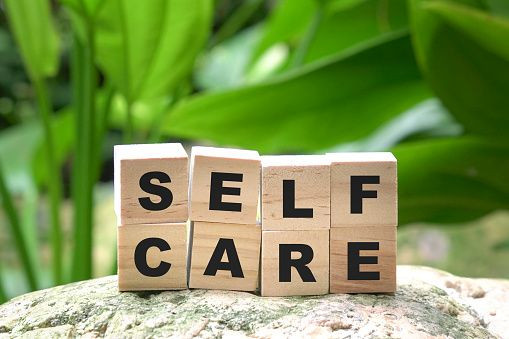On Monday's teacher only day, we were lucky to have Lance Burdett from WARN International speak to the staff about mental health in ourselves and our students. Read on to learn how to calm your mind, reduce stress and sleep better than ever....

Lance uses proven techniques grounded in neuroscience, combining positive psychology with emotional intelligence to explain how the brain works and why people are more stressed these days than ever before. We learnt so much about our brains.
Endorphins relieve pain and create a general feeling of well-being. Activities like eating, exercising, laughing, listening to music, and sunbathing may boost endorphins. Spreading kindness, getting a massage, going for a walk.
Oxytocin is released by connecting with one another, hugging, cuddling your pets and creating a bond by talking.
Dopamine comes from feelings of pleasure, driven by rewards; dopamine helps with cognition and executive functions. There are healthy and not so healthy ways to get dopamine. Gaming and social media are designed to give you a dopamine hit, this is how we become addicted to technology. A better way to get dopamine that helps our brain is by giving and receiving praise, accomplishing something, being proud of our achievements, and helping someone. A simple way thing you can do each morning is to write all your tasks down and then tick them off as you complete them.
How to help yourself!

Read & Write
Read - The more info your brain has, the better; many books, articles, and blogs are written about how our brains work.
Write - Write down your feelings. Writing something down can put it into your subconscious and take it away from your active thoughts - which stills the brain. Physical writing is more beneficial than typing, it helps your brain process thoughts. You can also draw how you feel. Make a list of positive things each day, even just 1 thing a day that made you smile.
Talk
Socialization helps get it out of your head. Tell someone how you feel, and share experiences. We are hard-wired to talk in person, so as easy as online communication can be, try to socialise in person.


Relax & Breathe
Relax - Put technology away and get lost in something - prayer, meditation, art, music, exercise or whatever works for you.
Breathe - Diaphragmatic breathing - we need to get enough oxygen to function properly. Breath from your belly, not your chest.
- A deep breath and then a big sigh out can clear our minds and reset our thought patterns.
- Slow breathing = Slow thought.
A great breathing exercise to get into Alpha Zone: close eyes - breathe through the nose. 6 seconds in, 6 seconds out - for 2 minutes. Alpha waves induce feelings of calm, increase creativity, and enhance your ability to absorb new information.
Exercise
Cortisol is a hormone released to help us cope with stress. Once the stressful situation is over we need to release the cortisol to move forward and relax again, the way to do this is through exercise so get moving!


Sleep
7 plus hours a night is the minimum for good wellbeing. We have 3-5 REM cycles a night each lasting around 90 minutes. If you wake every couple of hours, you are waking at the end of a REM cycle. REM sleep plays an important role in dreaming, memory, emotional processing, and healthy brain development. Dreams consolidate long-term memories and defrag the brain (throwing out unnecessary stuff). Difficulty sleeping may be because you have something on your mind. Your brain will keep you awake to solve it.
Simple sleep tips
- Walk for 30 minutes in the evening.
- Have a hot shower before bed.
- A small piece of protein before bed, such as an egg, handful of nuts or a very small piece of meat.
- Breathe - slowly.
To learn more visit www.warninternational.com



 42 Rathgar Rd
42 Rathgar Rd